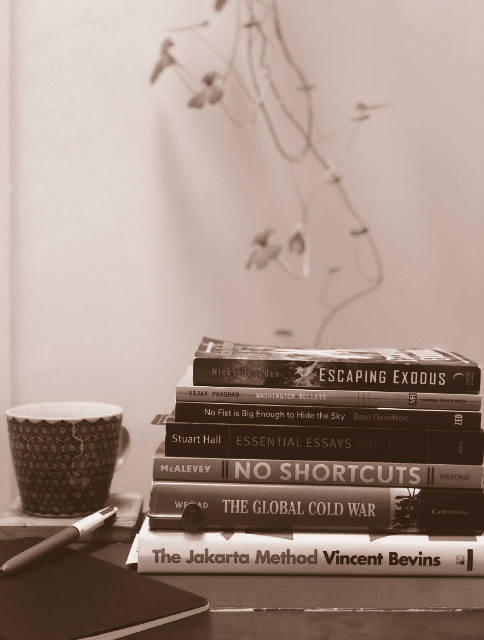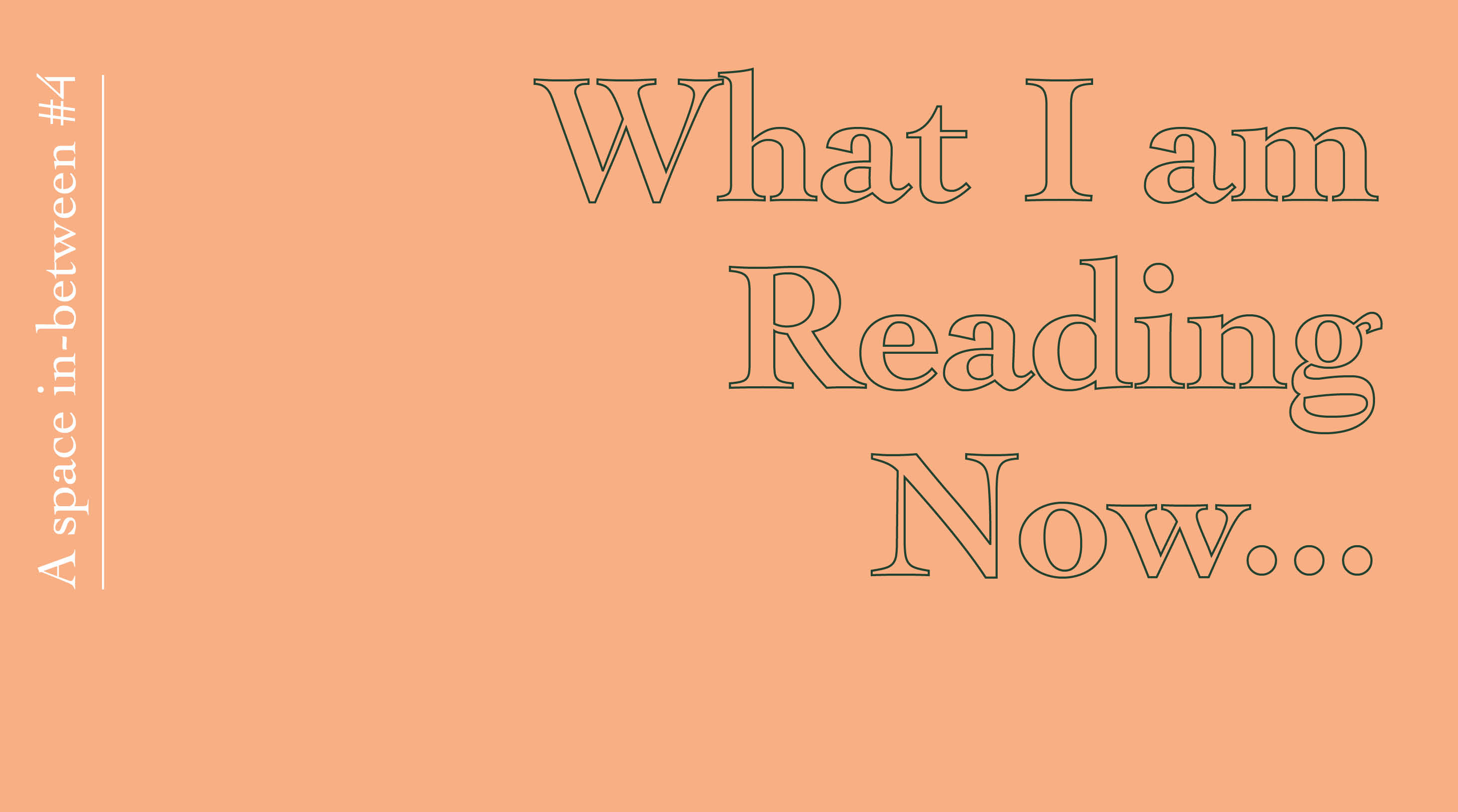What I am Reading Now…
Joshua Virasami
December 2021
I’m a serial non book finisher, in fact one of the lyrics off my old album is ‘six books by my bedside, but only half of them read’, so the disclaimer here is that some (definitely less than half) of these are unfinished. That said, this set of books have been hugely influential to me in past months, in helping make sense of the world around me, and the world within me.
There’s a temptation to treat an introduction like this almost as a journal of how these books have helped me navigate the world on a day to day, or week to week basis, but I won’t. What I’ll say is that these past weeks and months have taught me a lot about the power of mass culture, as a reactionary place, but also a place of challenge and of new possibility. A place where we are interpellated in a complicated way, but where we can navigate, decode, subvert and fundamentally challenge capitalism and its many twin evils.
In the past months I have been both one of the programmers for the World Transformed Festival, and a collaborator with a good friend and educator on the editing of a social justice curriculum for a well established museum in London, both roles have created space for thinking about culture, power, politics and representation – so it feels apt to be introducing some of the books that have acted as maps in this journey.
In navigating with an ear to the force of liberalism, neo-liberalism and enduring imperialism in today’s world Domenico Losurdo’s Liberalism: A Counter History, Vijay Prashad’s Washington Bullets, Vincent Bevin’s The Jakarta Method, and Odd Arne Westad’s The Global Cold War have been incredibly useful.
In navigating with an eye to strategy, power and political organising both Jane McAlevey’s No Shortcuts and Basil Davidson’s No Fist is Big Enough to Hide the Sky have been grounding materials.
In thinking carefully through culture, society and much more, I’ve returned to Stuart Hall, initially his key-note lecture ‘Race, the floating signifier’, and then in his introduction to the book Cultural Identity, titled Who Needs ‘Identity’? And his essays reflecting on Cultural Studies in Essential Essays Vol. 1.
Finally, in a long awaited return to fiction, I’ve had my imaginative muscles massaged through Nicky Drayden’s Escaping Exodus, an incredible sci-fi book which provokes so many questions of societal collapse, love and spiritual transcendence.
Joshua Virasami is an artist and political organiser, he is a member of climate justice collective Wretched of the Earth and anti-racist organisation Black Lives Matter UK. As an activist and organiser he has been involved in a number of movements and campaigns, including the Occupy movement.
As a writer he has written for various outlets including Guardian, Independent and Novara Media, and has published How to Change it: Make a Difference with #Merky Books. As a facilitator and educator he works with collective Resist and Renew, and independently with various cultural initiatives and grassroots groups. In his day job he works on a five year programme exploring a Just food and climate transition in the borough of Tower Hamlets, bringing together community groups, local authorities and housing providers to experiments in local, sustainable food production, distribution and waste.
Reading
Liberalism: A Counter History, Domenico Losurdo (Verso, 2014)
Washington Bullets, Vijay Prashad (Monthly Review Press, 2020)
The Jakarta Method, Vincent Bevin (Public Affairs, 2020)
The Global Cold War, Odd Arne Westad (Cambridge University Press, 2011)
No Shortcuts, Jane McAlevey (Oxford University Press, 2018)
No Fist is Big Enough to Hide the Sky, Basil Davidson (Zed Books, 2017)
Race, the floating signifier, Stuart Hall (Keynote lecture, Goldsmiths College, 1997)
Questions of Cultural Identity, Stuart Hall and Paul du Gay (SAGE Publications Ltd, 1996)
Escaping Exodus, Nicky Drayden (Harper Voyager, 2019)

Please note the views published in What I am Reading Now… are personal reflections of the contributors.
These may not necessarily represent the views of the University of Dundee.
———
Home
Previous Issue: Yayra Sumah, November 2021
Next Issue: Ranjana Thapalyal, January 2022
